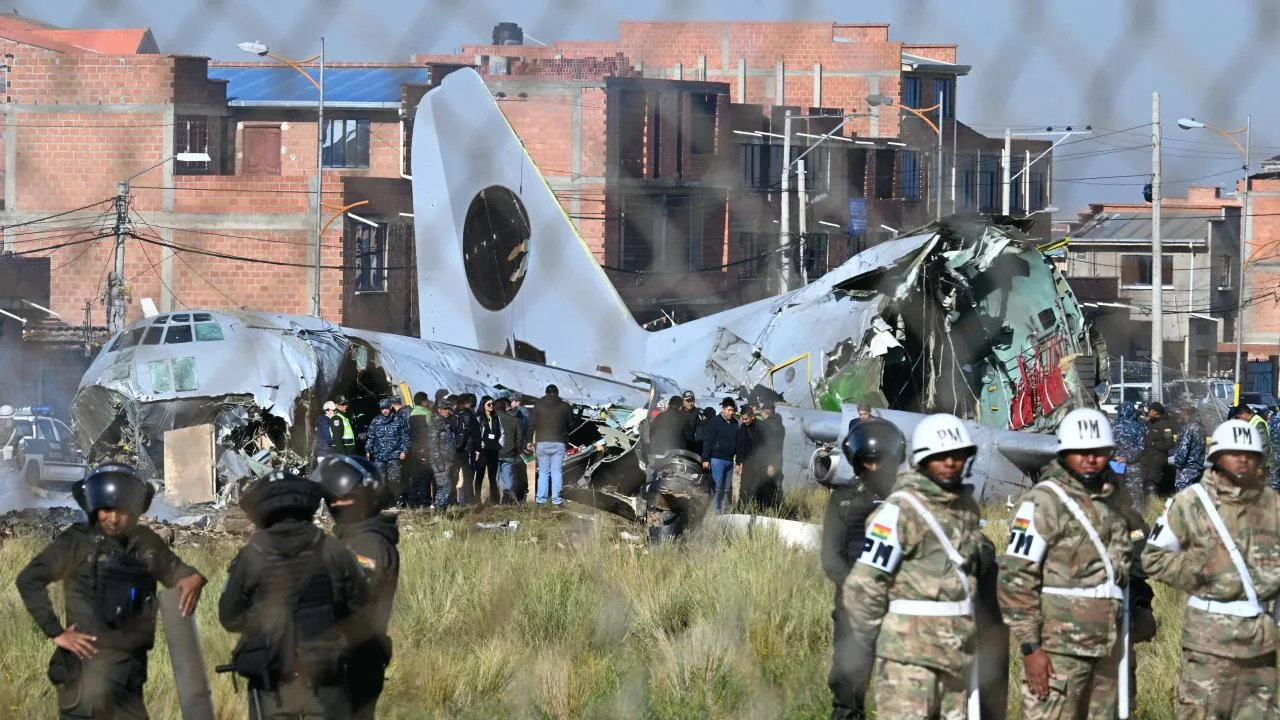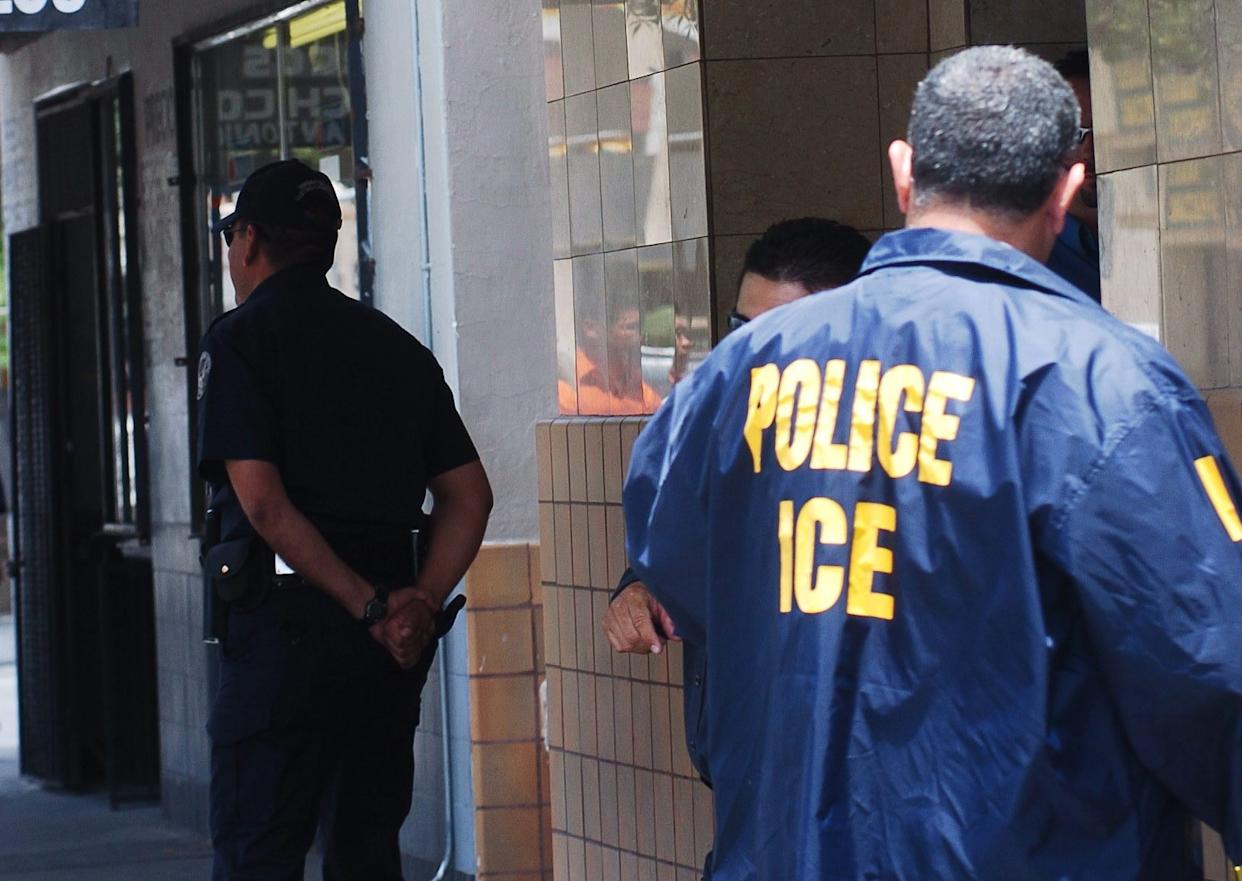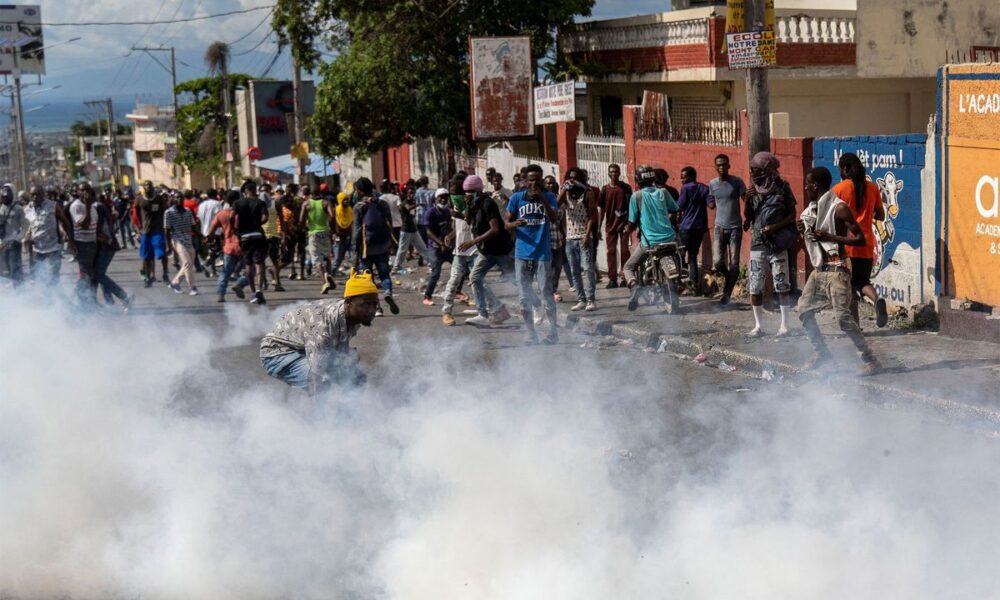International
US team discusses help for troubled Haiti but cautious on troops

AFP
US officials on Wednesday held talks in Haiti on requests for international intervention to combat spiraling insecurity but President Joe Biden’s administration indicated reluctance over sending US troops.
The Biden administration said, however, that it was imposing US visa restrictions on Haitians blamed for the unrest and was working with Mexico on a UN Security Council resolution to draft targeted sanctions and take additional security measures.
Brian Nichols, the top US diplomat for the Western Hemisphere, and Lieutenant General Andrew Croft, deputy commander of the US Southern Command, will spend two days in the capital Port-au-Price where they will meet Prime Minister Ariel Henry and other key stakeholders, the State Department said.
The Haitian government on Friday formally requested international assistance as a cholera epidemic grows and law and order break down, with armed gangs seizing swathes of the Western Hemisphere’s poorest country including its largest fuel import terminal.
The US team will “talk about the request that was put forward by the prime minister and ensure that we are engaging actively with all sectors of Haitian society to make sure that the international community is responding to the needs of Haiti,” another US official told reporters on customary condition of anonymity.
The official said the United States was also looking to “expedite” new humanitarian assistance to fight cholera and provide fuel.
But the official indicated that Biden — a frequent skeptic of US troop deployments who last year ended the war in Afghanistan — was in no mood to include US boots in any potential force for Haiti, which the United States controlled for nearly two decades a century ago.
“The question of security presence is obviously an area where we are treading very carefully to make sure that we are doing the right things and not doing the things that in the past have not worked,” he said.
“I think it’s premature to really start thinking about whether the United States is going to put have a physical presence inside of Haiti.”
UN Secretary-General Antonio Guterres has called for the immediate deployment of a special armed force, warning of a “dramatic deterioration in security.”
But the US official said Washington’s focus was on upgrading the Haitian National Police, which was created in 1995 under the country’s first elected president, Jean-Bertrand Aristide, to ensure civilian control and bring security.
The United States, long the key player in Haiti, has devoted $90 million since last year to strengthening the police as well as $171 million in humanitarian assistance.
International
Bolivia Orders Three Investigations Into Deadly Military Plane Crash

Bolivia’s Defense Minister Marcelo Salinas announced Monday that three separate investigations will be conducted into Friday’s crash of a military cargo aircraft at El Alto International Airport, near La Paz, which left at least 22 people dead.
The Hercules aircraft, operated by the Fuerza Aérea Boliviana (FAB), was transporting cash intended for the Central Bank of Bolivia when it overshot the runway after landing from the city of Santa Cruz. The plane reportedly traveled nearly one kilometer beyond the airport perimeter.
The incident sparked chaotic scenes, with individuals attempting to collect scattered banknotes. Authorities detained 51 people in the aftermath, and the government declared three days of national mourning.
Multiple Investigations Underway
The first inquiry is being led by a military board from the Bolivian Air Force, which has already taken custody of the aircraft’s black box for analysis.
Minister Salinas said two additional investigations will follow — one conducted by the insurance company and another by the aircraft’s manufacturer.
“At least two more investigations will come, that of the insurance company and that of the aircraft manufacturer,” Salinas said during a press conference in Santa Cruz.
He cautioned that the investigative process could take between three and six months, noting that the black box cannot be opened in Bolivia due to the lack of specialized laboratories for analysis.
Awaiting Official Findings
Salinas stressed that the FAB investigative board is the highest authority in the case and urged the public to wait for its conclusions to avoid speculation about the causes of the crash.
He also confirmed that the government has contacted the families of the 22 victims and the 37 injured, as well as the owners of 15 damaged vehicles, to coordinate procedures with the insurer and cover the corresponding expenses.
International
Mexico Calls for Immediate Probe After National Dies in ICE Custody

Mexico’s Secretaría de Relaciones Exteriores (SRE) on Monday called on U.S. authorities to conduct an “immediate and thorough” investigation into the death of a Mexican national while in custody of U.S. Immigration and Customs Enforcement (ICE) at a processing facility in California.
In a statement, the Mexican government described the death as “regrettable” and urged U.S. officials to clarify the circumstances surrounding the case in order to “determine responsibilities and ensure that such events do not happen again.”
Death at Adelanto Processing Center
According to available information, the Mexican citizen died at the Adelanto Processing Center in California while under ICE custody. Authorities have not yet released the individual’s identity or the cause of death.
Following the incident, Mexico’s Foreign Ministry formally requested “detailed information” from U.S. authorities, including the detainee’s medical records and custody reports.
Consular Assistance Activated
The Mexican Consulate in San Bernardino, California, has activated consular assistance protocols to provide ongoing support to the deceased’s family. Officials have contacted relatives to express condolences and offer legal guidance, as well as assistance with the necessary procedures to repatriate the remains.
“The handling of situations like this and the establishment of mechanisms to resolve them are priorities for the Government of Mexico,” the Foreign Ministry said, adding that it will formally request an investigation into any systemic conditions that may have contributed to such incidents.
Local Mexican media reported that seven Mexican nationals died while in ICE detention last year — the highest number recorded since the agency was created.
International
Anti-ICE Billboard Campaign Targets Immigration Spending in 31 U.S. Cities

More than 200 billboards criticizing U.S. Immigration and Customs Enforcement (ICE) began appearing Monday in 31 cities across the United States, including Miami, as part of a campaign highlighting the high cost of immigration enforcement operations for taxpayers.
The initiative, titled “ICE Costs Us,” was launched by the civil rights organization Mijente and will run for four weeks.
Criticism of Spending and Enforcement Tactics
The billboards feature images of ICE agents during arrests or carrying military-style weapons. According to the organization, spending on military-grade equipment for the agency has increased by 600 percent in recent years.
Several signs display messages such as:
“Your taxes are being wasted” and “ICE’s cruelty costs you $28 billion,” referring to the agency’s annual budget.
In a statement, Marisa Franco, co-founder of the Mijente Support Committee, said:
“For too long, our government has prioritized building cages and investing billions in an immigration enforcement apparatus that has left families torn apart and communities terrified.”
She added that “Millions of Americans are living paycheck to paycheck, yet this violent agency continues operating with a blank check. These decisions do not make us safer nor improve our economic security. Our billboards highlight these choices and demand a different path.”
Budget Debate and Medicaid Comparison
The campaign also draws a comparison between ICE’s funding and the estimated 17 million people who could lose health coverage under Medicaid due to federal budget cuts under President Donald Trump.
Other billboard messages seen in various cities include:
“They get billions to beat us; we get layoffs and rising rents” and “Funding ICE is a fast track to fascism.”
Organizers say the goal is to spark public debate about the allocation of federal funds for immigration enforcement and the broader economic and social impact of such policies on communities nationwide.
-

 International2 days ago
International2 days agoIran Reports 201 Dead, 747 Injured After U.S. and Israeli Strikes
-

 International5 days ago
International5 days agoCocaine Production Surges 34% in 2023 as Market Expands into Africa and Asia
-

 International4 days ago
International4 days agoTrump Floats “Friendly Takeover” of Cuba Amid Rising Tensions
-

 Sin categoría3 days ago
Sin categoría3 days agoTrump: ‘We Think It’s True’ Amid Claims Iran’s Supreme Leader Was Killed
-

 International3 days ago
International3 days agoSecurity Council to Hold Emergency Meeting on Middle East Crisis
-

 International2 days ago
International2 days agoPope Leo XIV Urges End to ‘Spiral of Violence’ in Middle East
-

 International5 days ago
International5 days agoFederal Judge Blocks Trump Policy Allowing Deportations to Third Countries
-

 International4 days ago
International4 days agoArgentina’s Senate Reviews Milei-Backed Labor Overhaul
-

 International18 hours ago
International18 hours agoBrazil’s Supreme Court Rejects Bolsonaro’s Bid for House Arrest
-

 International5 days ago
International5 days agoClinton Accuses Republican Committee of Using Epstein Case to Shield Trump
-

 International17 hours ago
International17 hours agoAnti-ICE Billboard Campaign Targets Immigration Spending in 31 U.S. Cities
-

 International17 hours ago
International17 hours agoTrump Warns of ‘Major Wave’ of Attacks as Iran Conflict Escalates
-

 International17 hours ago
International17 hours agoMexico Calls for Immediate Probe After National Dies in ICE Custody
-

 Central America17 hours ago
Central America17 hours agoPanama Canal Monitoring Trade as Middle East Conflict Disrupts Shipping
-

 International17 hours ago
International17 hours agoBolivia Orders Three Investigations Into Deadly Military Plane Crash






























